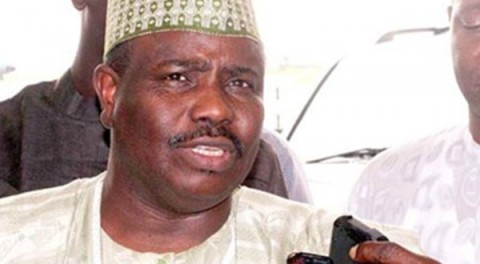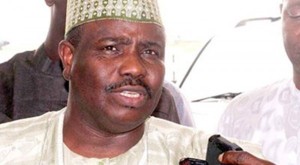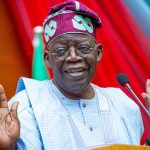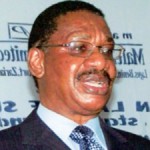Tamabuwal’s Alarm and the War Against Corruption in Nigeria
Articles/Opinion Saturday, December 14th, 2013
By Uche Igwe
This year’s international anti-corruption day will count as the most memorable in recent years. Not because of any other thing than the comments credited to the Speaker of Nigerian Federal House of Representatives, Rt. Hon. Aminu Waziri Tambuwal. He had accused President Goodluck Jonathan of lacking the political will in the war against corruption. Was he right? From the interesting responses that followed the commentary, it is obvious that the legislator might have spoken the mind of many Nigerians. Recently the country has been inundated with many forms of corruption scandals. There is hardly no month that passes that one scandal or another does not erupt from within one government agency. It is either the oil subsidy scandal or the aviation car scandal or the pension scandal or Malabu oil deal or the growing mystery oil theft or the recent one allegedly involving almost 50 billion dollars in unremitted crude sales. The figures are simply alarming.
The question agitating the minds of many is whether anyone is indeed fighting corruption in Nigeria or it is just limited only to political sloganeering? President Jonathan had admitted publicly that corruption is not the biggest problem of Nigeria and that he does not give a damn about asset declaration. That was like dropping the ball for a leader of Africa’s most populous country and highest oil producer. If the position of the President is consistent with what he has said publicly, then who could be leading the fight against corruption if any? Mr. Tambuwal had accused the Economic and Financial Crimes Commission (EFCC), Nigeria’s foremost anti-corruption watchdog as also being corrupt and unaccountable for the grants and donations that they had received from donor agencies. Really? So if watchdog is corrupt then what will politicians and bureaucrats who they are supposed to watch over do? Everyone should simply continue the bazaar! Many of the problems that are being encountered in Nigeria today are related to the endemic corruption that has invaded almost all aspects of our national life. The harm that corruption can do to any country is fairly well documented. It reportedly hurts the poor and is a dominant driver of the transition of fragile countries to failure. It distorts markets, deepens poverty, erodes the quality of life of citizens and allows organised crime terrorism and other threats to human security to flourish. It destroys politics by encouraging coronation against competition and makes mockery of hard work and corrodes public morality.
The war against corruption in Nigeria is said to have commenced in year 2000 with the establishment of the Independent Corrupt Practices and Other Related Offences Commission (ICPC) and later the Economic and Financial Crimes Commission (EFCC) in 2002. However many scholars observed that despite some early progress, the prosecution of anti-corruption reform in Nigeria coincided with the theft of state resources on an unprecedented scale. This rather brings to question the effectiveness of these anti-corruption agencies in line with the sentiments expressed by Rt. Hon Tambuwal. Despite huge resources allegedly spent in these reforms and despite the fact that successive administrations (at least before President Jonathan) have made anti-corruption one of its cardinal objectives, things may be moving from bad to worse.
It is also fascinating that a member of the legislative arm of government is the one pointing accusing fingers at the executive arm. While the Honourable Speaker may be right about the issues that he raised, the public must not lose sight of the fact that anti-corruption is one of the key roles of the parliament in a democracy. He should not just talk, he should act. The legislative arm of government in Nigeria has had their own fair share of corruption scandals and to say the least have come short of carrying out their constitutional responsibilities in terms of anti-corruption. They should also look among themselves and purge the Nigerian parliament of bad eggs to be able to climb on the moral high ground where the Nigerian public can take them more seriously. Furthermore if they have evidence of corruption against the executive arm, the laws are clear on the course of action. The points raised during the commentary of the Speaker are so weighty that it may be very dangerous to continue to ignore them.
Often I wonder if we should continue to wage or pretend to wage a war towards eradicating corruption completely or we should evolve hybrid institutional approaches aimed at reducing corruption to a fairly less harmful and more tolerant level where it can still permit economic growth. By the way some of the Asian countries like Indonesia have made substantial economic progress despite the fact that they had (and still have) corruption related problems. One way to explain this could be the type of corruption and accumulation that those involved in the act take in each of these countries. For instance, the corrupt elite in Indonesia reportedly invested their money in the country while those who engage in corruption in Nigeria launder them abroad and invest the funds in luxury real estates in Dubai, London, South Africa, United States or simply hide them bank accounts affiliated to shell companies littered in many tax havens abroad. Jobs that would have been created through such investments are lost to other countries. A double tragedy for the economy from here these funds were looted.
On a final note, one of the reasons why corruption may be flourishing in Nigeria is due to the fact that it does not raise enough outrage and indignation among the Nigerian public. We do not even have any sense of nationhood so we do not have qualms if ‘Nigerian’ money is stolen by my kinsman. We collude with these thieves in a strange way. We have a funny interpretation of our sense of ownership and entitlement. There is a tiny but influential segment of the Nigeria public who feel that those who are stealing public money are merely stealing ‘our’ money and so should be forgiven. If he is from Nigeria Delta and he has stolen oil money, he should be left alone; after all it is ‘our’ money. Why should a Northerner talk about it? If he is from Kano State and he stole funds belonging to the public, why should an Igbo man write about it? Even when the figures are huge and they sound like a big bag in the media, it will only take a few weeks before we forget and face another one. And if anyone insist, he is accused of hating a particular tribe. And the next thing, crowd of supporters will be rented from his/her village to go on solidarity demonstrations saying leave or son or daughter alone. What a country!
At a time when the Nigerian position in the global Corruption Perceptions Index has become poor – up to place 144 in 2013, the comments of such a high level politician like Aminu Waziri Tambuwal should not be treated with levity. We must begin to ask questions regardless of who will be hurt. The fate of Nigeria is more important that the discomfort of a few greedy people from one region or another. Our political leaders have to choose between fighting corruption or just pretending to do the same.
Uche Igwe wrote from Department of Politics, University of Sussex. He can be reached on ucheigwe@gmail.com
Related Posts
Short URL: https://www.africanexaminer.com/?p=5973























